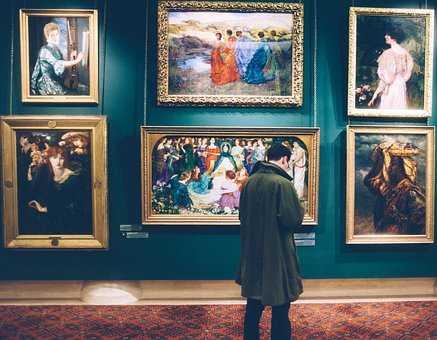How did creativity become an engine of economic growth?
Curated from: aeon.co
Ideas, facts & insights covering these topics:
9 ideas
·1.95K reads
3
Explore the World's Best Ideas
Join today and uncover 100+ curated journeys from 50+ topics. Unlock access to our mobile app with extensive features.
The history of "creativity"
- Creativity, as a power belonging to an individual, doesn't go back very far. The first recorded usage of the word creativity came from the Oxford English Dictionary in the 17th century: 'In Creation, we have God and his Creativity.'
- In the 17th and 18th centuries, the creative power was thought of as divine. The idea of a secular creative ability in the imaginative arts didn't appear until the Romantic Era when the poet William Wordsworth addressed the painter and critic Benjamin Haydon: 'Creative art...demands the service of a mind and heart.'
- In the 1970s, writers reflected on the newness of the concept of creativity, that it was valuable and in need of encouragement.
- Before WWII, the word 'creativity' was then expressed as genius, originality, productivity, or even intelligence.
89
376 reads
Original and productive thought
- During the 19th and 20th centuries, categories such as original and productive thought were reworked as mundane, manifestations of ordinary abilities, as competences that do not belong to an endowed individual.
- French biologist Louis Pasteur said in 1854 on originality as a special gift: 'Fortune favours the prepared mind.'
- In 1903, American inventor Thomas Edison said of genius that it is '1 per cent inspiration, 99 per cent perspiration'.
- Albert Einstein thought it intellectually and morally wrong to attribute gifts to people like him. 'It strikes me as unfair, and even in bad taste, to select a few for boundless admiration, attributing superhuman powers of mind and character to them.'
75
266 reads
Original work in the world of commerce
In the early 20th century, original work entered the world of commerce. Chemical, pharmaceutical and electrical companies hired large numbers of academically trained scientists, believing that innovation was vital to commercial success and that science belonged in commercial organisations.
Companies such as General Electric and Eastman Kodak didn't think creative and productive work had anything to do with hiring awkward geniuses but with finding the organisational forms that allowed ordinary people to achieve extraordinary things.
76
242 reads
Acknowledging the value of genius
- In 1920, a reflective director of industrial research at Eastman Kodak acknowledged the reality and value of genius. Well-trained and motivated scientific workers could make valuable contributions even though they were untouched by genius.
- In the 1950s, employers varied in opinion about whether the organisational difficulties in looking after genius were worth the effort. If you wanted profits, you had to allow intellectual freedom and allow the scientific workers to do just what they wanted to do for some of the time.
70
188 reads
Creativity and organization
The military was a key factor in creativity's Cold War history, particularly American history.
A psychologist wrote: 'In the presence of threat, creativity could no longer be left to the chance occurrence of genius; neither could it be left in the realm of the wholly mysterious and the untouchable. Men had to be able to do something about it; creativity had to be a property in many men; it had to be something identifiable; it had to be subject to efforts to gain more of it.'
78
214 reads
Defining creativity
In 1950, a leading psychologist lamented that only a small proportion of professional literature was concerned with creativity.
Within a decade, a 'creativity movement' developed. Seminars on 'creative engineering' were held, asking what creativity is, why it's important, what factors influence it, how it should be developed. There was never a consensus about whether particular definitions were right, but sentiment settled around a substantive link between creativity and the idea of divergent thinking. People were thought to be creative if they could branch out and imagine a range of possible solutions.
79
220 reads
Creativity is considered desirable
By its nature, creativity is individual, eccentric, and antagonistic to attempts to plan to organise it. An effort to manage creative people might result in only getting the appearance of creativity.
The categories of being creative, or a creative person, transitioned over time from the sacred power to a secular ability. From the 1950s onward, creativity has been established as something desirable and essential, a value that was the source of many other values.
71
148 reads
When creativity is not enough
Marketing expert Theodore Levitt published an essay in 1963, 'Creativity is not enough.' Levitt stated that creativity might be a source of new ideas, but it is not ideal for good business outcomes. There is no short supply of new ideas.
Creativity is having a new idea, while innovation is the realisation of an idea in a specific outcome. It is innovation that really matters. Creative people tend to be irresponsible and detached from the processes of achieving results.
70
140 reads
Creativity is affected by its normalisation
The rise of creativity has continued since the Cold War. Many expert practices have been incorporated into the everyday life of organisations committed to producing useful novelty.
The specific language of creativity has become normalized just as new and useful making has become normalized. Producing new and useful things is not less important than it once was, but creativity has become so invested with value that the meaning and practices of real creativity are at risk of being lost.
70
162 reads
IDEAS CURATED BY
Weston I.'s ideas are part of this journey:
Learn more about problemsolving with this collection
Effective note-taking techniques
Test-taking strategies
How to create a study schedule
Related collections
Similar ideas
4 ideas
Albert Einstein: Mastering Creativity
zatrana.com
14 ideas
Creativity Is Much More Than 10,000 Hours of Deliberate Practice
blogs.scientificamerican.com
7 ideas
Common Plots of Economic History
collaborativefund.com
Read & Learn
20x Faster
without
deepstash
with
deepstash
with
deepstash
Personalized microlearning
—
100+ Learning Journeys
—
Access to 200,000+ ideas
—
Access to the mobile app
—
Unlimited idea saving
—
—
Unlimited history
—
—
Unlimited listening to ideas
—
—
Downloading & offline access
—
—
Supercharge your mind with one idea per day
Enter your email and spend 1 minute every day to learn something new.
I agree to receive email updates

